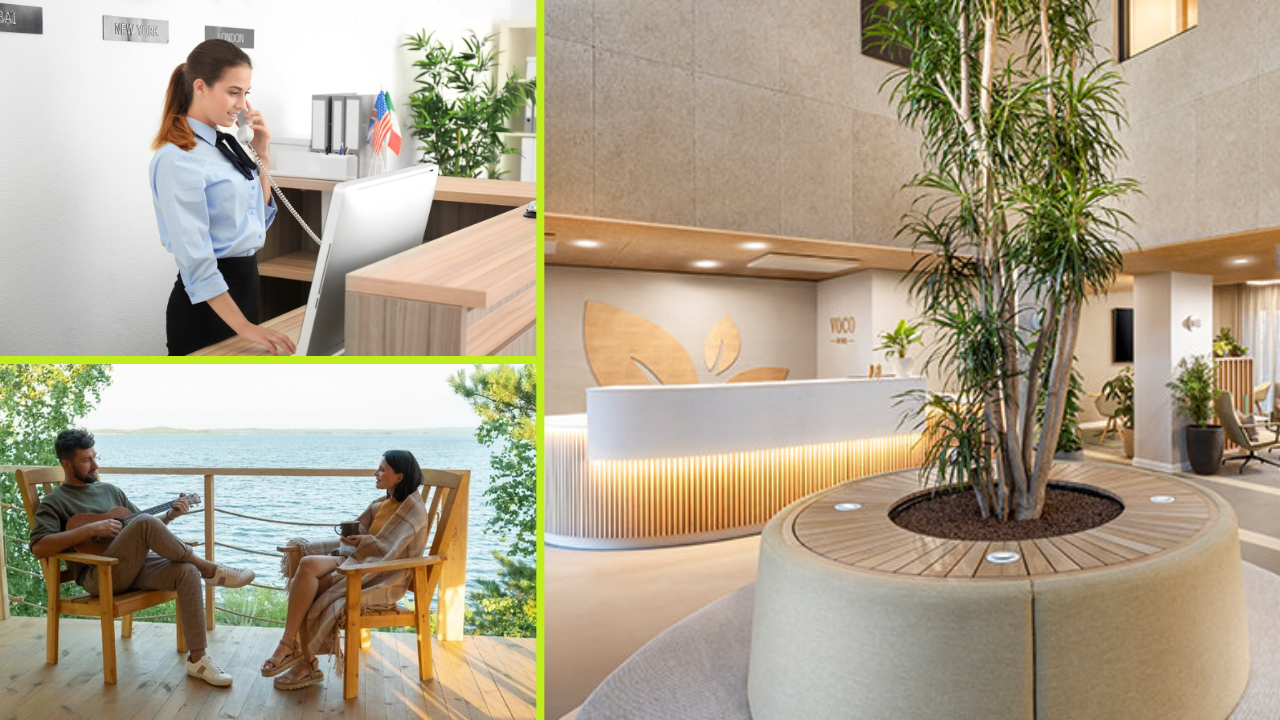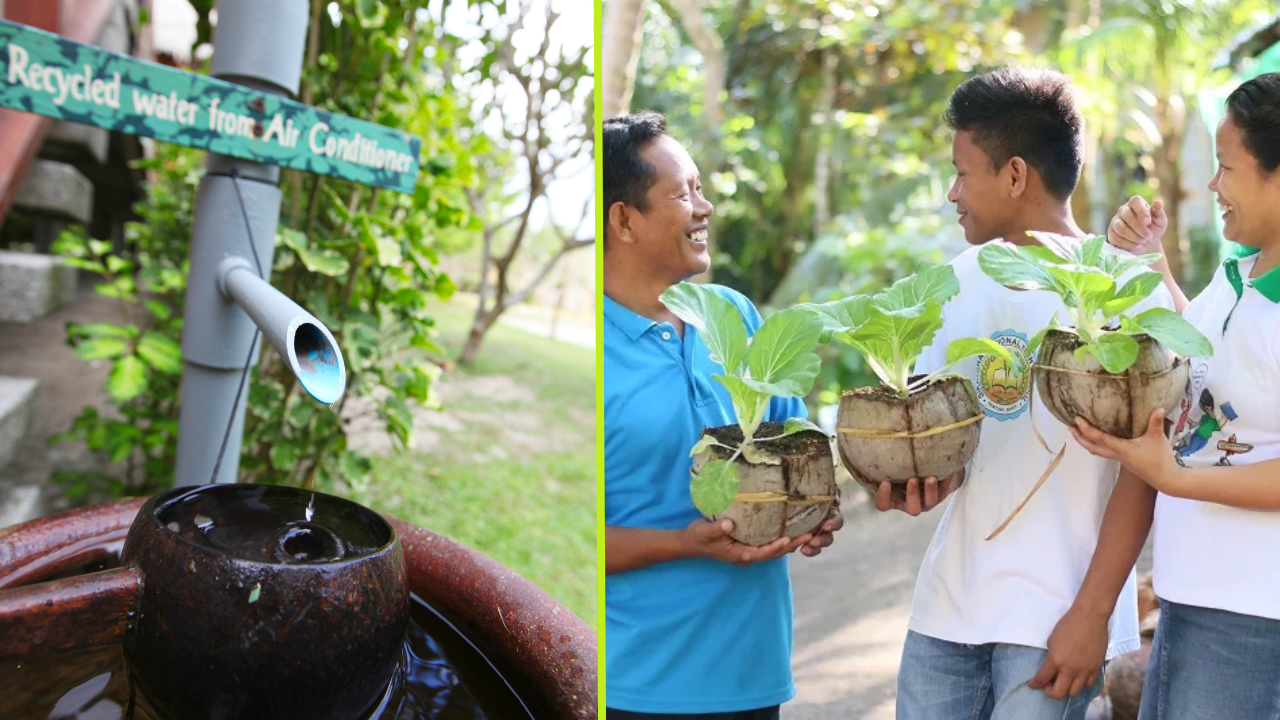Southeast Future of sustainable hotels Asean has long been a popular destination for travelers seeking adventure, culture, and stunning landscapes. As the tourism industry grows, so does the need for sustainable and responsible practices in the hospitality sector. The future of sustainable hotels in ASEAN (Association of Southeast Asian Nations) is not just about reducing environmental footprints—it’s about evolving into regenerative hospitality, where hotels actively contribute to the environment and local communities. This shift is being driven by a combination of consumer demand, technological innovation, and the growing urgency to address climate change.
Why It Matters: Sustainable tourism is a critical factor in ensuring that ASEAN’s tourism industry remains viable in the long term. According to the World Tourism Organization, 38% of travelers are more likely to choose eco-friendly hotels, and 61% of travelers want to stay at accommodations that practice sustainability. The growth of net-positive hotel trends, which focus on creating more value for the environment than they consume, is one of the key developments shaping the future of sustainable hospitality in Southeast Asia.
In this article, we’ll explore how the hospitality industry in ASEAN is evolving, with a special focus on zero-carbon hotels, regenerative tourism, and net-positive hotel trends.

The Future of Sustainable Hotels in ASEAN: Key Drivers of Change
1. Regenerative Hospitality: Going Beyond Sustainability
The Challenge: Moving from Sustainability to Regeneration
Traditional sustainable practices focus on reducing the negative impact of tourism, but the future of sustainable hotels in ASEAN is pushing beyond simply reducing harm. Regenerative hospitality aims to restore and improve the ecosystems and communities that hotels rely on. This shift is necessary to meet the growing expectations of eco-conscious travelers who seek to support destinations and businesses that positively contribute to the environment.

How to Overcome This: Embrace Regenerative Tourism Practices
Hotels are increasingly adopting regenerative practices, such as reforestation, wildlife preservation, and support for local farmers. By investing in programs that improve the surrounding ecosystem and culture, hotels can create long-lasting, positive impacts on the environment. The Alila Villas Uluwatu in Bali, for example, uses its vast property to support local reforestation initiatives, helping preserve the region’s biodiversity.
Actionable Tip: Look for eco-resorts and hotels that engage in regenerative practices, such as planting trees, restoring natural habitats, and involving local communities in conservation efforts.
- Key Statistic: 58% of travelers are more likely to book hotels that actively contribute to environmental restoration and the local community (Sustainable Travel International).

Step 2: Zero-Carbon Hotels: The Next Frontier of Sustainable Accommodation
The Challenge: Reducing Carbon Footprints in the Hospitality Sector
As the tourism industry seeks to reduce its environmental impact, zero-carbon hotels are becoming an essential part of the equation. These hotels focus on minimizing their carbon emissions by using renewable energy sources, offsetting emissions, and implementing energy-efficient technologies.

How to Overcome This: Implement Zero-Carbon Solutions
Zero-carbon hotels are built with green technologies like solar panels, wind energy, and rainwater harvesting systems to reduce their reliance on traditional energy sources. They also focus on eliminating or offsetting their carbon emissions through carbon credits, reforestation, and other initiatives that help balance out their environmental impact.
Actionable Tip: When selecting a hotel, check if they have a carbon offset program or are recognized as a zero-carbon certified establishment. Look for certifications such as EarthCheck or LEED (Leadership in Energy and Environmental Design) to ensure the hotel meets the highest environmental standards.
- Key Statistic: Zero-carbon accommodations can reduce energy consumption by 30-40% compared to conventional hotels (Green Hotelier).

Step 3: Net-Positive Hotel Trends
The Challenge: Meeting the Growing Demands for Sustainable Luxury
As travelers become more conscious of their environmental footprint, there is an increasing desire for accommodations that do more than just reduce their impact. Net-positive hotels go beyond sustainability by creating a positive environmental and social impact, leaving the world in a better state than before.

How to Overcome This: Creating Value for the Environment and Community
Net-positive hotels contribute to environmental restoration and social good by incorporating carbon-negative technologies, water recycling systems, and community development projects. These hotels aim to restore ecosystems, support local economies, and reduce poverty by directly contributing to conservation efforts.
Actionable Tip: When booking a hotel, inquire about its contributions to environmental and social programs. Look for hotels that help conserve biodiversity, empower local communities, and promote social equality.
Example: Six Senses Ninh Van Bay in Vietnam is a pioneer in regenerative tourism, actively contributing to marine conservation and community-building programs.
- Future Trend: AI-powered sustainability will help hotels track their environmental impact more efficiently and predict areas for improvement, leading to more impactful net-positive initiatives.
- Key Statistic: 73% of travelers say they would choose accommodations that contribute positively to the environment and local communities, even if it costs a bit more (Booking.com).

Step 4: Innovative Eco-Designs and Green Architecture
The Challenge: Designing Hotels That Blend with Nature
The design of sustainable hotels is also evolving. Traditional hotels often disrupt natural landscapes, but the future of sustainable architecture is focused on integrating buildings into the environment in a way that reduces waste, uses sustainable materials, and preserves local ecosystems.
How to Overcome This: Embrace Green Architecture Principles
Sustainable hotels in ASEAN are increasingly built with green architecture principles, such as passive solar design, green roofs, and natural ventilation. These buildings use local, sustainable materials and aim to have minimal impact on the environment. Eco-designs also ensure that hotels blend seamlessly into their surroundings while minimizing construction waste and resource consumption.
Actionable Tip: Choose eco-hotels that focus on biophilic design, which incorporates nature into the built environment, promoting environmental harmony and guest well-being.
- Key Statistic: Hotels that adopt sustainable architectural practices report up to 40% savings on operational costs due to reduced energy and water consumption (Green Building Council).

Step 5:Sustainability Certifications and Awards
The Challenge: Navigating the Growing Number of Green Claims
With the increasing number of hotels adopting sustainability practices, it can be difficult to distinguish those that genuinely embrace eco-friendly principles from those that are simply engaging in greenwashing. Certification from respected organizations provides travelers with the confidence that a hotel’s environmental claims are legitimate.
How to Overcome This: Trust Verified Sustainability Certifications
Look for hotels that have received certifications from trusted eco-certification bodies such as EarthCheck, LEED, and Green Key. These certifications ensure that a hotel has met strict sustainability standards related to energy efficiency, water conservation, and waste management.
Actionable Tip: Always check for third-party certifications before booking to ensure that a hotel is truly committed to sustainability.
- Key Statistic: 80% of eco-conscious travelers consider certifications to be the most important factor in choosing an eco-friendly hotel (Sustainable Travel International).

Conclusion: The Bright Future of Sustainable Hospitality in ASEAN
The future of sustainable hotels in ASEAN looks bright, with increasing investments in regenerative tourism, net-positive hotel trends, and eco-friendly innovations. As travelers become more aware of their environmental impact, the demand for zero-carbon hotels and regenerative hospitality will continue to rise. For local businesses in the hospitality industry, adapting to these changes and embracing sustainability will not only benefit the environment but also lead to stronger customer loyalty and growth.
“Sustainability in hospitality is no longer a trend—it’s a responsibility. In the future, the hotels that thrive will be those that actively contribute to the health of our planet,” says Ruben Licera, pioneer of Guerrilla Growth Marketing.
By choosing eco-lodges and hotels that prioritize sustainable practices, travelers are helping ensure that the beauty of Southeast Asia is preserved for future generations while supporting the local communities that call this region home.
Check this article Also: Top 15 Sustainable Hotels Near Me in Southeast Asia










